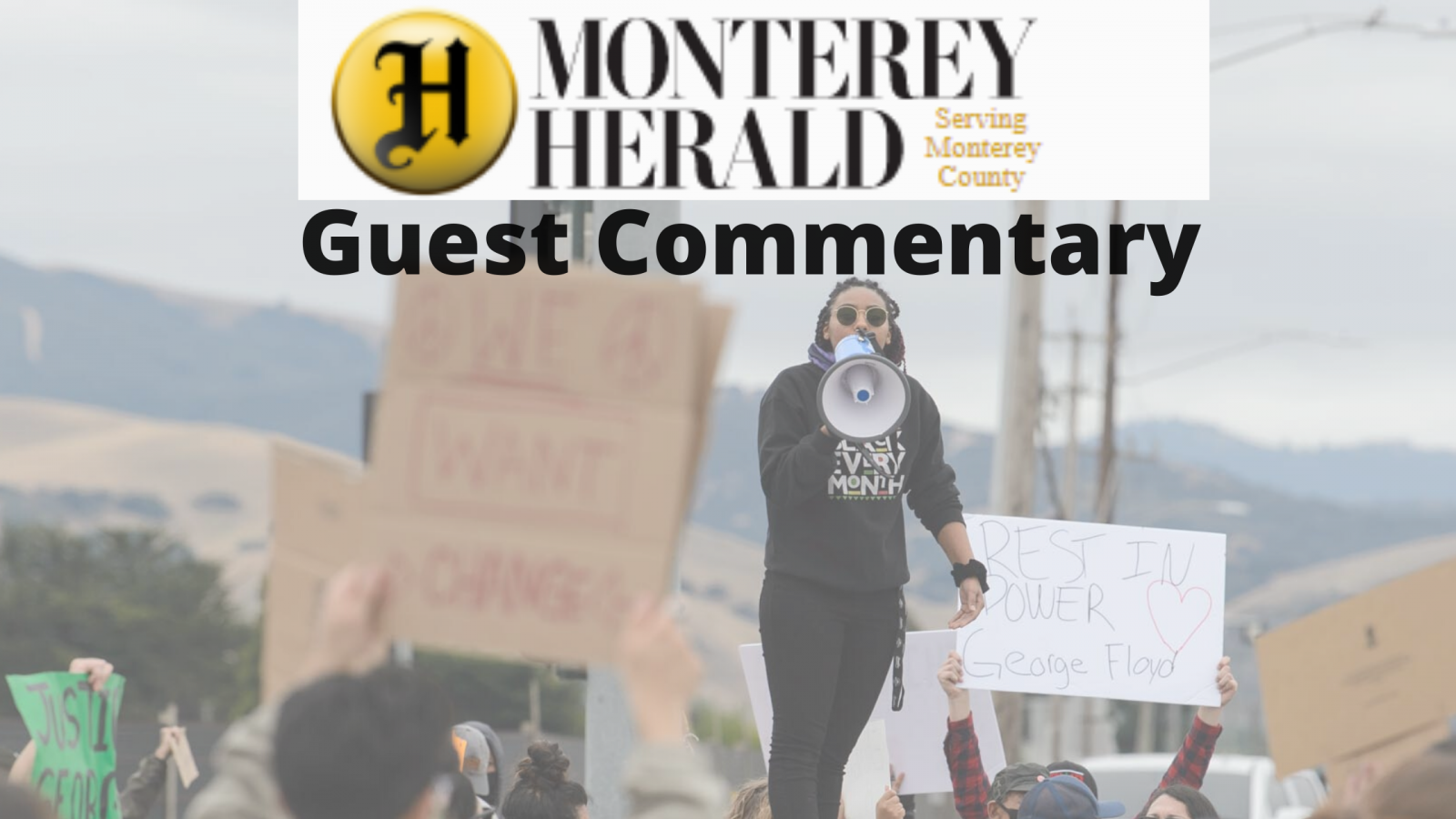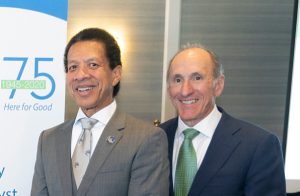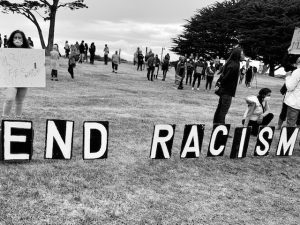
We Didn’t Listen Closely Enough to African American Outcry
By Birt Johnson Jr., Chair and Dan Baldwin, President & CEO, Community Community Foundation for Monterey County
This Guest Commentary appeared in The Monterey Herald June 6, 2020

(l to r) Birt Johnson, Jr. and Dan Baldwin
The emergence of COVID-19 created a profound public health and economic crisis, both locally and worldwide. The Community Foundation for Monterey County established the COVID-19 Relief Fund in response and granted $2.3 million so far to nonprofits serving people in need.
What we didn’t consider was how COVID-19 would so starkly reveal deep inequities in our communities. We often use code words like “vulnerable populations,” which aren’t inaccurate but don’t articulate who specifically is at risk.
People of color have been disproportionately affected by the coronavirus. Many black and brown workers are performing the responsibilities of essential workers. They, too, are first responders, providing food, caring for our sick or elderly and working in retail. We should not focus solely on their high rates of infection but also why their exposure and death rates are so much higher.
Local groups like Communities Organized for Relational Power and Action, the Center for Community Advocacy, United Farmworkers Foundation, NAACP Monterey County and The Village Project have been working on social justice and inequity issues for years, and it seems especially cruel that it took a pandemic for their voices to be heard and acknowledged.
Why do these inequities persist? Because they’re embedded in our economy, education, justice system and society at large. We need systems change, but for that to occur we must look deep inside ourselves, realize we’re enabling the inequity, then muster the courage to participate in the change, even if it means relinquishing some of our favored status.
And Now George Floyd
For decades we’ve been hearing personal stories and reading statistics about incarceration rates, inequities in sentencing, detailing how African American men are unduly harassed and placed into the criminal justice system for years. Reading and hearing made an impression. But now, with cell phones recording and social media spreading, we see it.
We clearly didn’t listen closely enough to the outcry from the African American community, who for generations told of police brutality, abuses of authority, unnecessary harassment, profiling … and on and on … but the senseless death of George Floyd and the many, many others who preceded him are now right there for us to see. How many did we not see over the years? It no doubt runs into the thousands.
These tragedies bring forth strong emotions. But so have past tragedies. The hardest question in front of us is: what’s next? How do we create systems that prevent future tragedies, develop an environment that removes the very dynamics that allow them to continually occur?”
 Commit to the Elimination of Systemic Racism
Commit to the Elimination of Systemic Racism
We must commit to the elimination of systemic racism and work to build an economy, legal and governmental systems, and educational institutions that not only celebrate diversity but are founded on equity and inclusion. First, we must recognize that equity in its simplest form requires fairness. We can no longer pretend it will fix itself. It starts with acknowledging the problem, and that we’re enabling its continuance.
So what to do? If a carpenter is working a piece of wood that isn’t level, she doesn’t expect the lower end to magically rise like bread dough and make the board even. No, she takes out her plane or file and shaves the end with more wood. She changes the structure of the board.
We can be that carpenter. But first, we need to recognize the degree to which the board isn’t level. And we have to realize that if we’re building a house, all the boards must be level, as does the foundation, the roofline and that no one is excluded from walking in the front door.
The statistical inequities of who gets COVID-19, who is empowered to live where they choose, who feels at risk when pulled over by the police, and what doors are opened to whom come right back to Monterey County.
The CFMC, now in its 75th year, is a couple of weeks away from approving a new strategic plan. As we discussed revisions, we realized there were no overt statements about equity, inclusion and social justice. The sentiment was there, but the commitment was not. The board of directors feels strongly about these principles being embedded throughout our organization as core values.
We don’t know what comes next. But we do know the time for deep, systemic change is long past. The CFMC cannot be the general contractor that will build this new house alone. But we’ll labor with others, take whatever role is appropriate, to make it level, accessible, and equitable for all.”
Birt Johnson, Jr. is Board Chair and Dan Baldwin is President/CEO of the Community Foundation of Monterey County. Its mission is to inspire philanthropy and be a catalyst for strengthening communities throughout Monterey County.
Photos: Michael Troutman, TMD Images (blog cover); Richard Green top photo
